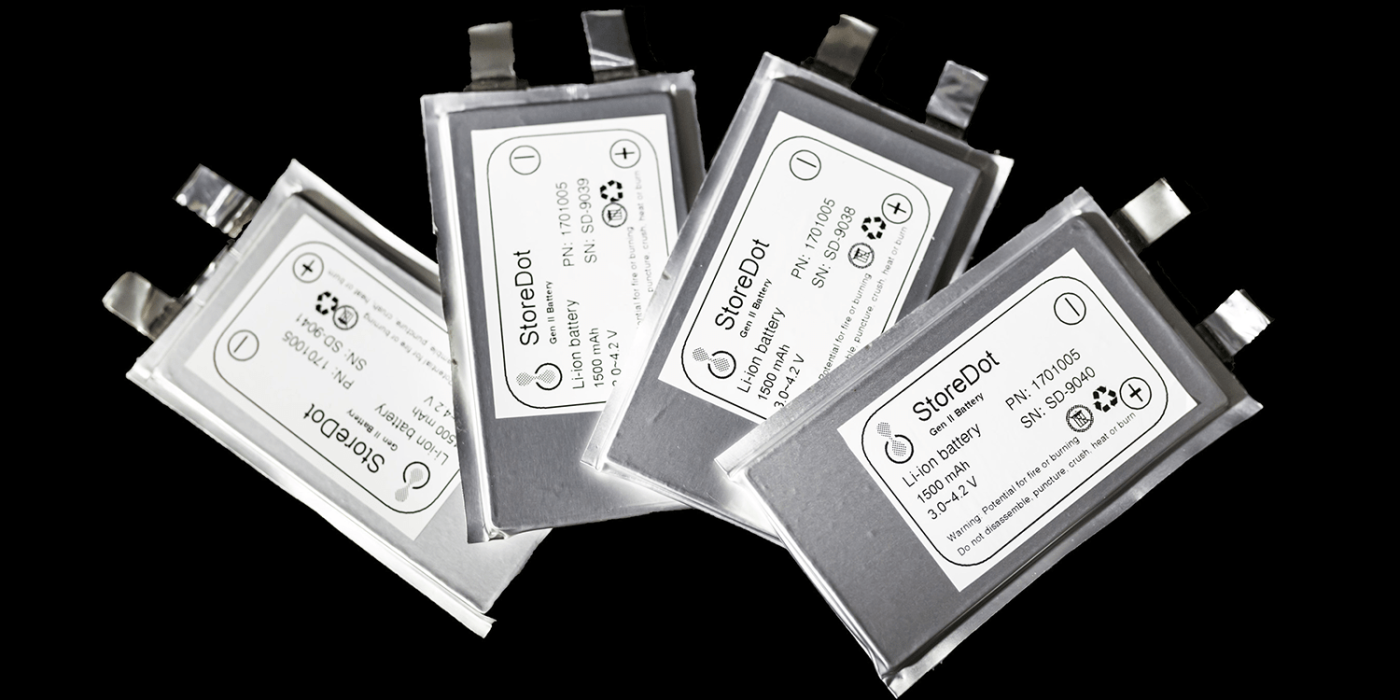StoreDot to showcase sample cells for potential partners
Battery developer StoreDot makes the development samples of its first generation of batteries available. The Israeli company is aiming for an extreme reduction in charging time.
Along with the petroleum company BP, which invested $20 million in StoreDot in 2018, StoreDot is working on a new generation of lithium-ion batteries that does not use graphite. Instead, the company says it uses materials such as tin, germanium and silicon in combination with organic compounds.
In June 2019, the two companies made public that they had demonstrated the full charging of an electric scooter for the first time equipped with StoreDot’s battery technology within five minutes. A model from the Spanish scooter manufacturer Torrot was used, for which a charging time of four hours applies ex-works. There is now also a video of the demonstration:
StoreDot further announced releasing the first production batch of sample cells to showcase the technology to potential partners. These are the battery cells that were used in the demonstration described above. “Sample availability provides major proof point of StoreDot’s ability to scale its technology within existing lithium-ion (Li-ion) battery manufacturing lines for mass production,” the company says. The sample cells were manufactured by partner EVE Energy in China.
StoreDot also mentions a new keyword at the core of the technology: metalloid nanoparticles. Together with organic compounds, these form the cell chemistry basis that is supposed to enable fast charging. StoreDot also announces that it is planning the prototype presentation of a silicon-dominant second-generation battery for electric vehicles later this year. Basically, the Israeli company aims to target its technology in several industries, including commercial drones and consumer electronics.
“StoreDot continues to go from strength to strength as we get one step closer to making our vision of 5-minute charging of EVs a commercial reality,” expresses Dr Doron Myersdorf, CEO of StoreDot. He said his team had overcome challenges such as safety, cycle life and swelling by using innovative materials and cell designs. “Today’s announcement marks an important milestone, moving XFC for the first time beyond innovation in the lab to a commercially viable product that is scalable for mass production.”
Dr Myersdorf adds that his team also demonstrated the five-minute fast charge on a commercial drone six months ago. In the video above, the company boss also reiterates the goal of supplying an electric car with enough electricity for a range of 300 kilometres within five minutes, whereas in the summer of 2019, there was still talk of “300 miles”, the equivalent of 480 kilometres.





0 Comments